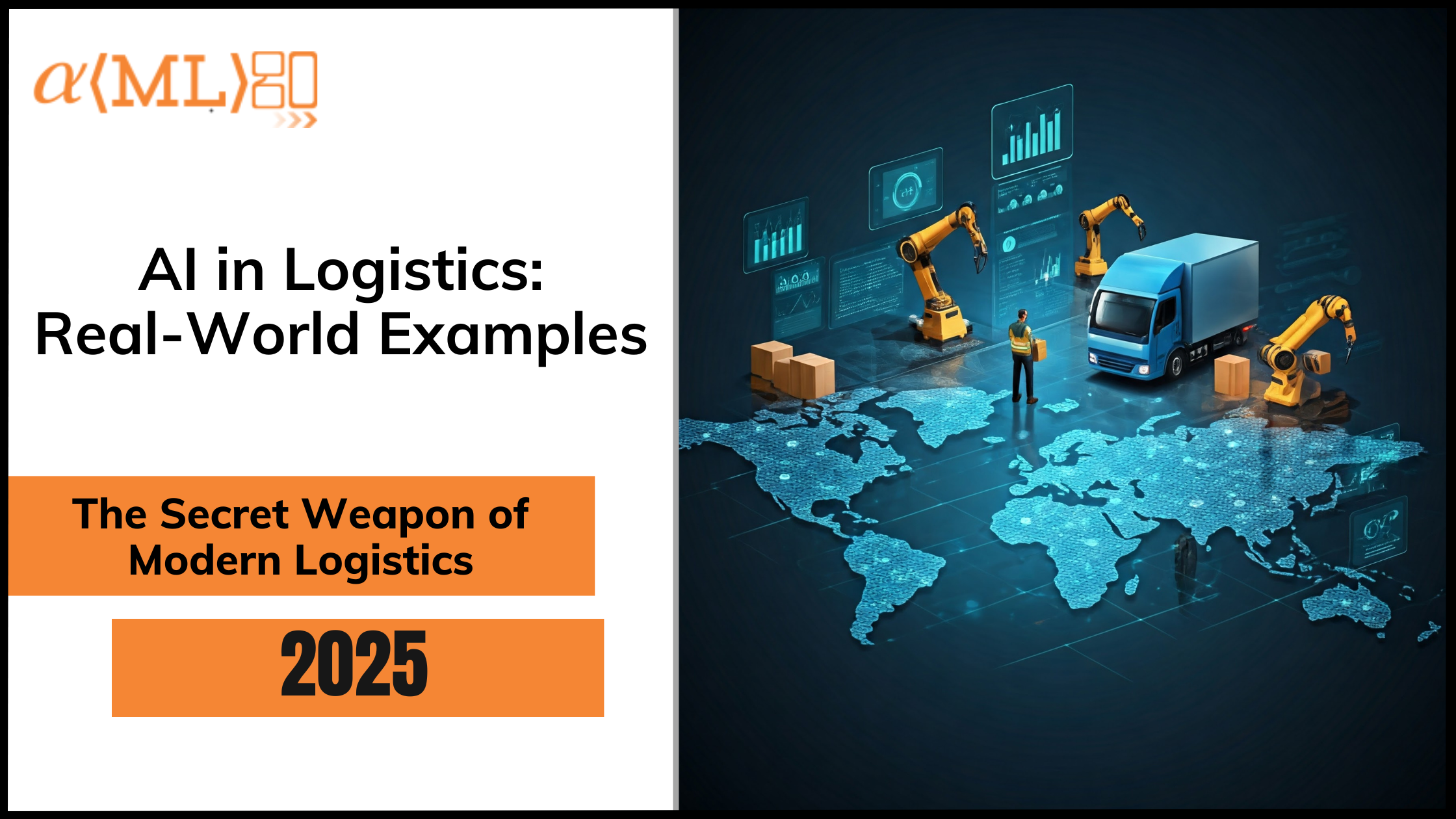
Artificial Intelligence is revolutionizing the logistics industry, transforming traditional supply chain operations into intelligent, data-driven ecosystems. From automated warehouses to predictive analytics, AI technologies are helping companies optimize their operations, reduce costs, and enhance customer satisfaction. Today’s logistics providers are leveraging machine learning algorithms and advanced analytics to tackle complex challenges across the entire supply chain network.
As global trade becomes increasingly complex and customer expectations continue to rise, AI solutions offer unprecedented capabilities in demand forecasting, route optimization, and risk management. These technologies are not just theoretical concepts but practical tools delivering measurable results. Through real-world applications, AI in logistics is proving to be an indispensable asset, helping businesses adapt to market dynamics while maintaining operational efficiency.
AI-Driven Demand Forecasting
Modern logistics operations are being transformed by AI-powered demand forecasting, enabling businesses to anticipate market needs with unprecedented accuracy. These advanced systems analyze multiple data streams simultaneously, providing actionable insights that drive efficient inventory management and improved customer satisfaction.
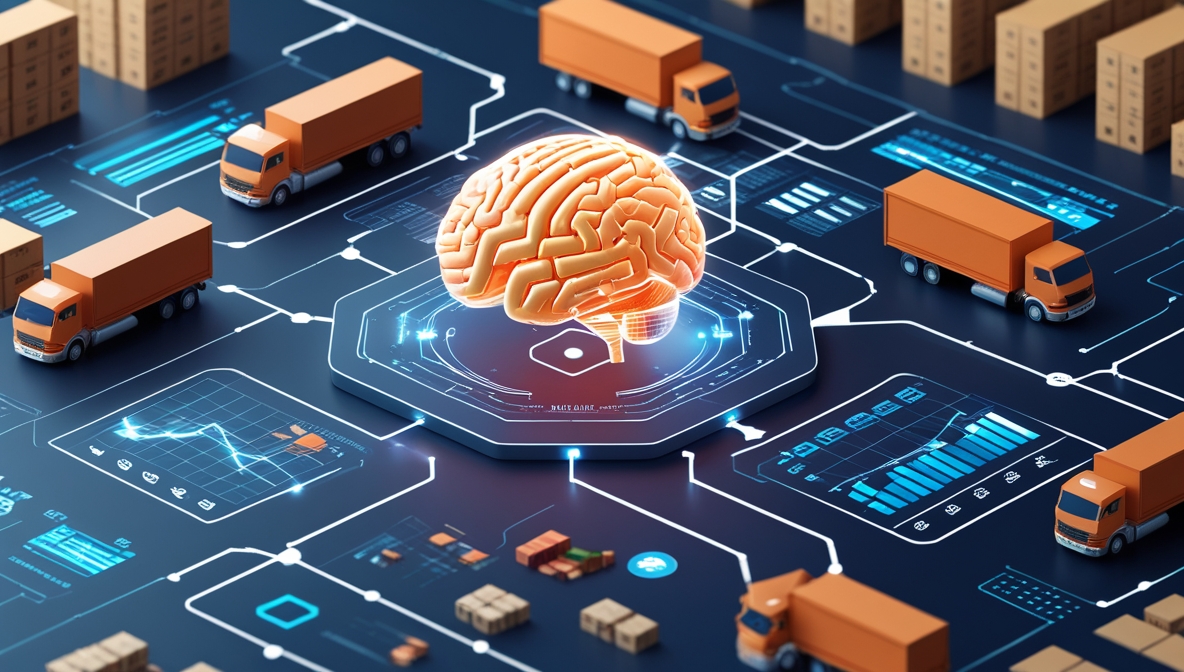
Optimizing Inventory with AI-Powered Predictive Analytics
Predictive analytics has revolutionized how businesses manage their inventory, transforming traditional approaches into data-driven decision-making processes. By leveraging machine learning algorithms, companies can now analyze historical data, market trends, and external factors to optimize their stock levels with remarkable precision.
| Key Benefits of AI in Inventory Management | Impact on Operations |
|---|---|
| Real-time Stock Level Optimization | 15-30% reduction in excess inventory |
| Automated Reordering Systems | 25% decrease in stockout incidents |
| Dynamic Safety Stock Calculations | 20% improvement in working capital |
| Demand Pattern Recognition | 40% better forecast accuracy |
These improvements directly translate into reduced carrying costs and improved cash flow, while ensuring product availability meets customer demands effectively.
Smart Solutions for Seasonal Demand in Logistics
Seasonal demand prediction has become increasingly sophisticated through AI integration in logistics operations. Machine learning algorithms excel at identifying complex seasonal patterns and correlations that might be invisible to human analysts. These systems account for various factors affecting seasonal demand:
- Historical Sales Patterns
- Weather Conditions
- Local Events and Festivals
- Economic Indicators
- Competitor Activities
AI systems can now detect micro-seasonal trends within traditional seasonal patterns, enabling businesses to prepare for demand fluctuations with greater precision. For example, an AI system might identify that certain products show peak demand not just during summer months, but specifically during sunny weekends in urban areas, allowing for hyper-localized inventory optimization.
The technology continuously refines its predictions by incorporating real-time data, ensuring that seasonal forecasts remain accurate even as market conditions evolve. This dynamic approach helps businesses maintain optimal inventory levels throughout different seasons while minimizing waste and maximizing profitability.
Boosting Order Accuracy Through AI-Driven Insights
AI technologies have revolutionized order accuracy in logistics through advanced pattern recognition and automated verification systems. These systems analyze ordering patterns to identify and flag potential errors before they occur, significantly reducing costly mistakes in the order fulfillment process.
Modern AI-powered order management systems achieve this through:
Real-Time Verification
- Automated cross-checking of orders against historical patterns
- Instant detection of unusual order quantities or combinations
- Smart validation of shipping details and product specifications
Intelligent Order Processing
The system learns from each transaction, continuously improving its accuracy and efficiency. When processing orders, AI considers multiple factors simultaneously:
- Customer order history
- Product compatibility
- Available inventory
- Shipping constraints
- Resource allocation
By implementing these AI-driven solutions, logistics companies have reported order accuracy rates exceeding 99.9%, while simultaneously reducing processing time and operational costs. The technology not only improves accuracy but also enhances the overall customer experience through faster, more reliable order fulfillment.
Warehouse Optimization Using AI
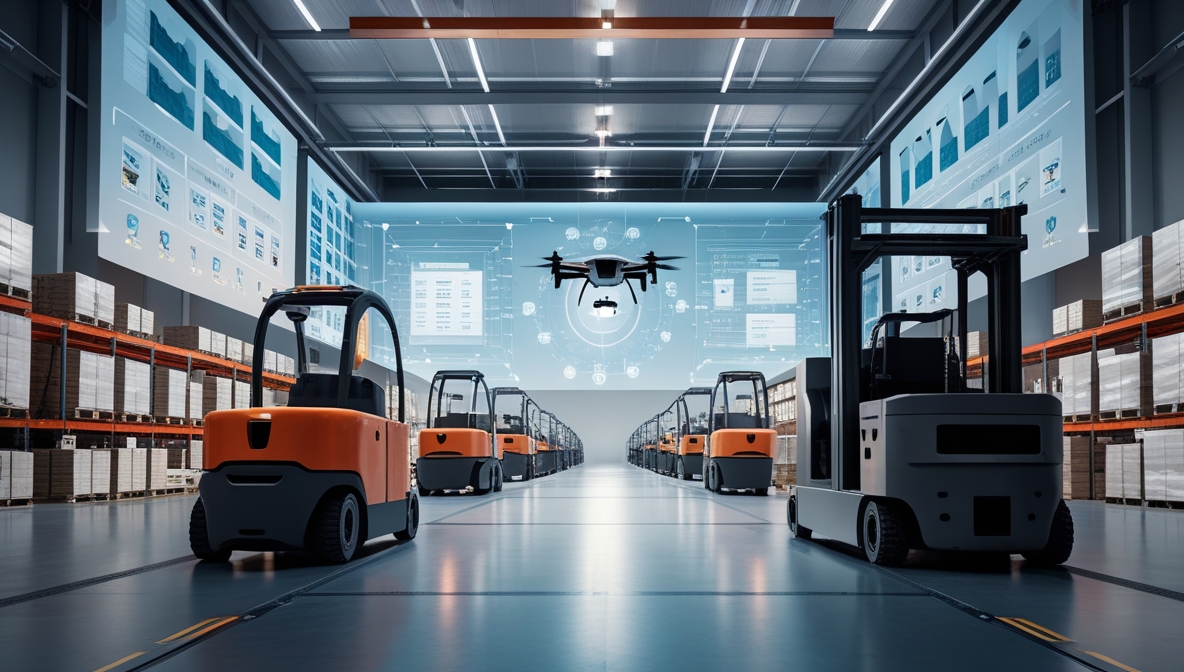
Modern warehouse operations are undergoing a remarkable transformation through AI integration. Initially, traditional warehouses relied heavily on manual processes, which often led to inefficiencies and errors. However, with the advent of AI technologies, warehouses are now evolving into smart facilities that operate with unprecedented precision and efficiency. Furthermore, these AI-powered solutions are not only enhancing operational capabilities but also significantly reducing costs while improving worker safety. Consequently, companies implementing AI-driven warehouse optimization are experiencing substantial improvements in throughput, accuracy, and customer satisfaction. Additionally, these advanced systems are proving particularly valuable during peak periods, when traditional warehouses often struggle to maintain efficiency.
Automated Picking and Sorting for Seamless Operations
The transformation of picking and sorting operations through AI automation has revolutionized warehouse efficiency. Initially, these tasks were entirely manual, prone to errors and delays. However, modern AI systems now coordinate complex picking operations with remarkable precision. Furthermore, these systems use advanced algorithms to optimize picking routes and methods.
Advanced AI picking systems achieve optimization through:
Dynamic Route Planning
- Real-time path optimization based on order priority
- Simultaneous multi-order processing
- Automated obstacle avoidance and rerouting
Subsequently, the integration of AI in sorting operations has led to unprecedented accuracy rates. Moreover, these systems can handle various product sizes and types simultaneously. Additionally, machine learning algorithms continuously improve sorting efficiency by analyzing patterns and adjusting operations accordingly. Consequently, warehouses implementing these solutions report significant reductions in processing time and error rates.
AI Algorithms for Smarter Storage Solutions in Logistics
AI algorithms have fundamentally transformed warehouse storage optimization, creating more efficient and adaptable storage systems. Initially, warehouse managers struggled with complex storage decisions based on limited data. However, AI now analyzes multiple factors simultaneously to determine optimal storage locations. Furthermore, these systems continuously adapt to changing inventory patterns and seasonal variations.
The AI systems optimize storage by considering:
- Product velocity and turnover rates
- Physical characteristics of items
- Historical access patterns
- Seasonal demand fluctuations
- Storage space utilization
Subsequently, these sophisticated algorithms ensure that high-demand items are stored in easily accessible locations. Moreover, the system automatically adjusts storage arrangements based on real-time demand patterns. Additionally, AI-powered storage optimization has shown remarkable results in space utilization, typically improving capacity by 20-30%. Consequently, warehouses can handle more inventory without expanding their physical footprint.
Revolutionizing Warehousing with AI-Powered Robotics
The integration of AI-powered robotics in warehousing represents a significant leap forward in logistics automation. Initially designed for simple tasks, these robots have evolved to handle increasingly complex operations. Moreover, modern warehouse robots utilize sophisticated AI algorithms that enable them to adapt to changing environments and work safely alongside human workers.
| Robot Type | Primary Function | Efficiency Improvement |
|---|---|---|
| AMRs | Autonomous navigation | 45% faster picking |
| Robotic Arms | Product handling | 60% reduced errors |
| Collaborative Robots | Human assistance | 35% increased productivity |
Subsequently, these robotic systems are continuously learning and improving their performance through machine learning algorithms. Furthermore, they can operate 24/7, significantly reducing operational downtime. Additionally, the implementation of AI-powered robotics has shown remarkable returns on investment, with most facilities reporting complete ROI within 18-24 months. Consequently, this technology is becoming increasingly accessible to warehouses of all sizes.
Enhancing Transportation and Route Optimization

The integration of AI in transportation logistics has fundamentally transformed how companies manage their delivery operations. Modern AI systems are revolutionizing route planning and fleet management through sophisticated algorithms that process real-time data. Furthermore, these advanced solutions are enabling companies to achieve unprecedented levels of efficiency while significantly reducing operational costs. Additionally, the implementation of AI-driven transportation systems has become essential for maintaining competitive advantage in today’s fast-paced logistics sector.
Dynamic Routing and Real-Time Adjustments in Logistics
AI-powered dynamic routing systems have revolutionized traditional transportation planning by introducing real-time adaptability to logistics operations. These sophisticated systems continuously analyze multiple data streams, including traffic patterns, weather conditions, and delivery priorities, to optimize routes instantly. Furthermore, machine learning algorithms can predict potential disruptions before they impact delivery schedules.
The impact of dynamic routing has been particularly significant in urban logistics, where conditions change rapidly. For instance, leading logistics companies implementing AI-driven routing systems have reported delivery time reductions of up to 25%. Moreover, these systems can automatically adjust routes to accommodate last-minute changes, such as new delivery requests or unexpected road closures. Additionally, the integration of real-time customer communications ensures that recipients stay informed about any schedule adjustments, thereby enhancing service quality and satisfaction levels.
AI for Smarter Fleet Maintenance and Longer Lifespans
The implementation of AI-driven predictive maintenance has transformed fleet management in the logistics industry. Initially, maintenance schedules were based primarily on mileage or time intervals. However, modern AI systems now analyze real-time vehicle data to predict potential issues before they cause breakdowns. Furthermore, these predictive systems significantly reduce maintenance costs while improving vehicle reliability.
Critical aspects of AI-based predictive maintenance include:
- Real-time monitoring of vehicle components
- Analysis of historical maintenance data
- Performance pattern recognition
- Early warning system for potential failures
- Optimization of maintenance schedules
Subsequently, these systems have demonstrated remarkable accuracy in predicting maintenance needs. Moreover, companies implementing AI-driven predictive maintenance report significant reductions in unexpected breakdowns and maintenance costs. Additionally, this proactive approach ensures optimal fleet performance and longevity.
Cutting Fuel Costs with AI-Driven Route Efficiency
AI technology has revolutionized fuel cost management in logistics operations through sophisticated data analysis and real-time optimization. Initially, fuel consumption was difficult to predict and control effectively. However, modern AI systems now analyze multiple factors simultaneously to optimize fuel efficiency. Furthermore, these systems provide actionable insights that lead to significant cost savings.
The AI algorithms consider various elements to minimize fuel consumption, including driver behavior patterns, vehicle performance metrics, and route characteristics. Subsequently, the system provides real-time recommendations for fuel-efficient driving practices. Moreover, these insights have helped companies achieve remarkable reductions in fuel costs, typically ranging from 15% to 25%. Additionally, the environmental impact of these optimizations aligns with sustainability goals, creating a win-win situation for both business operations and environmental responsibility.
AI in Supply Chain Risk Management

The integration of AI in supply chain risk management has transformed how companies identify and mitigate potential disruptions. Modern AI systems analyze vast amounts of data to detect patterns and anomalies that might indicate emerging risks. Furthermore, these systems enable organizations to move from reactive to proactive risk management strategies.
Proactive Risk Detection with AI Tools for Logistics
AI-powered risk detection systems have revolutionized how logistics companies anticipate and identify potential supply chain disruptions. These sophisticated systems continuously monitor multiple data sources, including supplier performance metrics, market conditions, and global events. Subsequently, they process this information through advanced algorithms to identify potential risks before they materialize.
Risk Detection Capabilities:
| Risk Category | AI Detection Time | Traditional Detection Time |
|---|---|---|
| Supplier Issues | 2-3 weeks ahead | 2-3 days ahead |
| Market Disruptions | 1-2 months ahead | 1-2 weeks ahead |
| Weather Impact | 5-7 days ahead | 1-2 days ahead |
Moreover, these systems have demonstrated remarkable accuracy in predicting supply chain disruptions. The technology has enabled companies to reduce the impact of supply chain disruptions by an average of 35%.
Building Resilience in Supply Chains Using AI Models
AI modeling has transformed how organizations build resilience into their supply chains. These advanced systems create digital twins of supply chain networks, enabling companies to simulate various scenarios and test different response strategies. Subsequently, the AI analyzes historical disruption data to identify patterns and vulnerabilities within the supply chain.
Key aspects of AI resilience modeling include:
- Network vulnerability assessment
- Alternative supplier identification
- Capacity planning optimization
- Risk impact quantification
- Resource allocation strategies
Moreover, companies implementing AI-based resilience modeling have reported a 40% improvement in their ability to maintain operations during disruptions. The technology continues to evolve, incorporating new data sources and improving prediction accuracy.
Streamlining Disruption Responses with AI Automation
AI systems have transformed how organizations respond to supply chain disruptions. These intelligent systems automatically initiate pre-planned response protocols when they detect potential disruptions. Subsequently, they coordinate responses across multiple departments and stakeholders, ensuring a cohesive approach to risk mitigation.
The automated response system analyzes the severity of disruptions and implements appropriate countermeasures. Moreover, it continuously monitors the effectiveness of these responses, making real-time adjustments as needed. Companies utilizing these automated response systems have reported a 45% reduction in disruption resolution time.
Risk Analytics and Performance Monitoring
AI-powered risk analytics provide unprecedented insights into supply chain performance and vulnerability. These systems integrate data from multiple sources to create comprehensive risk profiles and performance metrics. Subsequently, they generate actionable intelligence that helps organizations make informed decisions about risk management strategies.
The analytics platform monitors key performance indicators and risk metrics in real-time. Moreover, it provides detailed reports on risk exposure and mitigation effectiveness. Companies leveraging AI-based risk analytics have experienced a 30% improvement in their risk prediction accuracy and a 25% reduction in risk-related costs.
AI for Customer Experience in Logistics
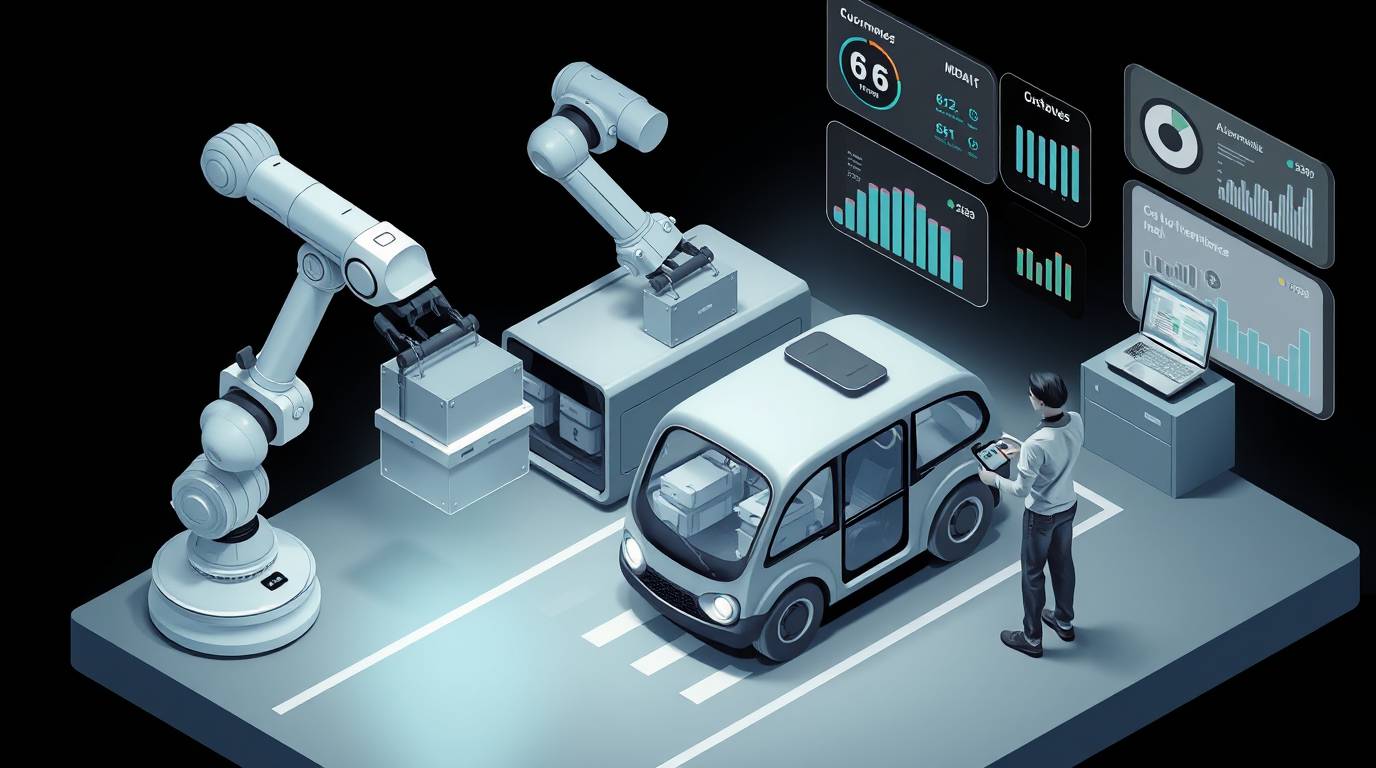
The integration of AI in logistics has fundamentally transformed customer experience management, setting new standards for service excellence. Traditional customer service approaches often struggled to meet modern expectations for speed and personalization. However, AI-powered solutions now enable logistics companies to provide real-time, personalized experiences at scale. Furthermore, these systems continuously learn from each interaction, allowing for increasingly sophisticated and nuanced customer engagement. Moreover, companies implementing AI-driven customer experience solutions report significant improvements in satisfaction scores and customer retention rates.
Personalized Order Tracking and Real-Time Updates with AI
AI has revolutionized how customers track and receive updates about their shipments. These advanced systems analyze delivery patterns and customer preferences to provide highly personalized tracking experiences. Furthermore, they can predict potential delays and proactively notify customers, transforming the traditional tracking experience into an interactive and informative journey.
Key Benefits of AI-Powered Tracking:
- Accurate delivery time predictions (95% accuracy)
- Proactive delay notifications
- Custom communication preferences
- Real-time route visualization
- Personalized delivery instructions
Moreover, these systems learn from each delivery to improve future predictions. Subsequently, customers receive increasingly accurate and relevant updates about their shipments. The implementation of AI-powered tracking systems has led to a 40% reduction in customer service inquiries and a 60% increase in customer satisfaction scores.
Smart AI Chatbots Enhancing Logistics Support
Modern AI-powered chatbots have transformed customer support in logistics. These sophisticated systems can handle complex queries and provide instant, accurate responses 24/7. Furthermore, they understand context and can maintain natural conversations, making interactions more engaging and effective for customers.
The impact of AI chatbots in logistics customer support has been remarkable. Response times have been reduced to less than 10 seconds, while achieving an impressive 85% first-contact resolution rate. Furthermore, customer satisfaction scores have reached 92% positive ratings, demonstrating the effectiveness of these AI-powered solutions. Moreover, companies implementing these systems have reported a significant 45% reduction in customer service costs.
These chatbots continuously learn from interactions, improving their response accuracy over time. Subsequently, they can handle increasingly complex customer inquiries while maintaining high satisfaction rates. The combination of speed, accuracy, and continuous learning capabilities has made AI chatbots an indispensable tool in modern logistics customer service operations.
Improving Last-Mile Delivery with AI-Powered Logistics
AI technology has revolutionized last-mile delivery operations, creating more efficient and customer-centric delivery experiences. These systems analyze various factors including traffic patterns, weather conditions, and customer preferences to optimize delivery routes and times. Furthermore, they enable real-time communication between delivery personnel and customers.
The AI algorithms process multiple data points simultaneously, including:
- Historical delivery success rates
- Customer availability patterns
- Weather forecasts
- Traffic conditions
- Building access information
Moreover, these systems have reduced failed delivery attempts by 35%. Subsequently, this has led to improved customer satisfaction and reduced operational costs. The implementation of AI in last-mile delivery has resulted in a 28% improvement in delivery success rates and a 40% reduction in delivery-related customer complaints.
How Amlgo Labs Can Help Your Logistics Business?
75% of logistics companies say data-driven insights are critical to staying competitive. At Amlgo Labs, we specialize in transforming logistics operations with advanced AI and data solutions. Our expertise spans predictive AI, generative AI agents, and analytics dashboards tailored to your business. We know every logistics company faces unique challenges, so we develop custom solutions to tackle your specific needs while seamlessly integrating with existing systems.
Custom AI Solutions to Solve Unique Logistics Challenges
Amlgo Labs starts by analyzing your current logistics operations in detail. We collaborate with stakeholders to uncover pain points and opportunities for optimization. Then, we craft AI-powered solutions that align perfectly with your workflows and goals.
Our process ensures:
- Scalable systems that grow with your business
- Seamless integration with existing tools
- User-friendly designs to maximize adoption
- Solutions built for future expansion
We don’t stop at implementation! Amlgo Labs offers training and continuous support to ensure you get maximum value as your operations evolve.
Advanced Analytics Expertise for Smarter Decisions
With Amlgo Labs, logistics companies to unlock the full potential of their data. We implement sophisticated analytical tools that transform raw data into actionable insights. Furthermore, our solutions provide real-time visibility into key performance indicators, enabling informed decision-making at every level of your organization.
Our analytics capabilities include:
- Advanced predictive modeling
- Real-time performance tracking
- Custom reporting dashboards
- Trend analysis and forecasting
- Risk assessment modeling
Moreover, our team of data scientists and logistics experts continuously refine these analytics tools to improve accuracy and relevance. Subsequently, this ensures that your organization always has access to the most current and valuable insights for strategic planning and operational optimization.
Maximizing Efficiency and ROI with AI Integration
Our AI integration strategies have consistently delivered substantial returns on investment for logistics companies. By carefully analyzing your operations, we identify areas where AI can create the most significant impact. Furthermore, we develop implementation roadmaps that ensure smooth transitions and quick wins to demonstrate value.
| Performance Metric | Typical Improvement Range |
|---|---|
| Operational Costs | 25-35% reduction |
| Order Accuracy | 40-50% improvement |
| Warehouse Efficiency | 30-40% increase |
| Delivery Times | 20-30% reduction |
| Customer Satisfaction | 45-55% enhancement |
Moreover, we provide detailed ROI tracking and regular performance reviews to quantify the impact of our solutions. Subsequently, this data-driven approach helps justify further AI investments and guides continuous improvement efforts. Our commitment to driving measurable results has made us a trusted partner for logistics companies seeking to leverage AI for competitive advantage.
Partner with Amlgo Labs Today
Amlgo Labs is your trusted partner for transforming logistics through AI, predictive analytics, and big data solutions. From automating processes to enhancing customer satisfaction, we help you leverage advanced technology for sustainable growth. Ready to see measurable results? Contact us to revolutionize your logistics operations!
The Future of AI in Logistics
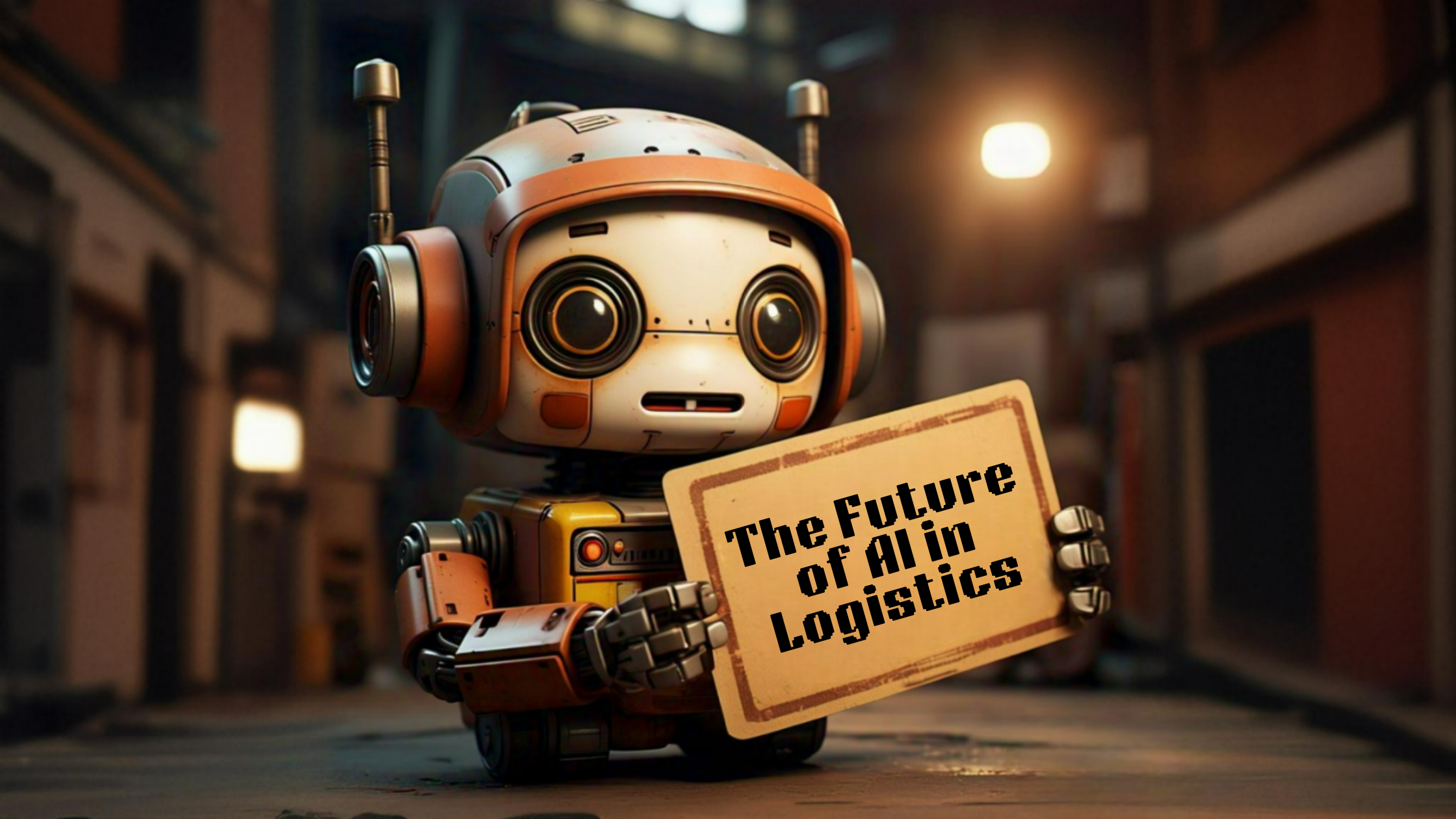
AI is redefining the logistics industry, unlocking new possibilities for efficiency, sustainability, and global connectivity. As technology evolves, understanding emerging trends and AI’s role in logistics becomes essential for businesses aiming to stay competitive.
Emerging Innovations Shaping Logistics with AI
The logistics industry is embracing cutting-edge technologies to stay ahead in an increasingly dynamic global landscape. AI and its advanced capabilities, including generative AI (Gen AI), are driving transformative trends that promise unprecedented efficiency and agility.
- Hyper-automation in Logistics
Logistics operations are moving beyond isolated automation to hyper-automation, where AI, robotics, and IoT work together to streamline processes. From warehouse robots to AI-powered scheduling, hyper-automation minimizes human intervention, reducing errors and accelerating workflows. - Generative AI for Smarter Forecasting
Gen AI is redefining demand planning by analyzing extensive datasets to identify patterns and predict supply chain disruptions. It enables companies to prepare for seasonal demand spikes and adapt to unexpected market changes. - AI-Enabled Autonomous Vehicles
The rise of autonomous trucks and drones is revolutionizing last-mile delivery. AI ensures these vehicles navigate routes efficiently, reducing fuel consumption, delivery times, and operational costs. - Digital Twins in Logistics
Digital twin technology, powered by AI, creates real-time virtual models of supply chains. Companies use these replicas to test strategies, optimize operations, and predict potential risks without disrupting actual systems. - Sustainable Innovations with AI
AI is at the forefront of eco-friendly logistics. From route optimization that cuts emissions to smarter packaging systems that minimize waste, AI is helping companies achieve their sustainability goals while improving cost efficiency.
Sustainability in Logistics with AI-Powered Solutions
AI is revolutionizing sustainable logistics by enabling companies to reduce environmental impact while maintaining operational efficiency. Here are five ways AI is shaping eco-friendly practices in the industry:
- Route Optimization for Reduced Emissions
AI-powered algorithms analyze traffic patterns, weather conditions, and delivery schedules to plan the most efficient routes. This reduces fuel consumption and minimizes carbon emissions, helping companies achieve their sustainability goals while cutting costs. - Energy-Efficient Warehousing
Smart energy management systems, driven by AI, optimize warehouse energy use. By monitoring equipment and adjusting power consumption based on demand, AI reduces energy waste, improving both efficiency and sustainability. - Predictive Maintenance for Green Fleets
AI monitors vehicle performance in real-time, predicting potential breakdowns and scheduling timely maintenance. This reduces downtime, fuel inefficiencies, and emissions, ensuring logistics fleets remain eco-friendly. - Minimizing Packaging Waste
AI tools analyze product dimensions and shipping needs to recommend optimal packaging. This reduces material waste, promotes reusable solutions, and aligns with sustainable logistics strategies. - Supply Chain Transparency for Sustainability
AI enhances visibility across supply chains, allowing companies to track and monitor the environmental impact of their operations. Real-time insights enable proactive decisions that support sustainable sourcing and production practices.
Global Supply Chains Transformed by AI Connectivity
The global supply chain is a complex web of processes, stakeholders, and regulations, but AI is transforming how these elements connect and collaborate. With its ability to process vast amounts of data in real-time, AI is helping logistics companies navigate the challenges of global operations more efficiently.
- Cross-Border Efficiency
AI simplifies cross-border logistics by automating customs documentation, flagging potential compliance issues, and predicting delays due to regulatory changes. This proactive approach reduces bottlenecks, saving time and resources for companies managing international shipments. - Real-Time Visibility
Tracking goods across global supply chains has always been a challenge, but AI-powered systems now offer real-time updates. This visibility allows businesses to monitor shipments, anticipate disruptions, and adjust operations on the fly, ensuring smooth deliveries. - Collaborative AI Ecosystems
AI enables better communication and coordination between suppliers, manufacturers, and distributors. By integrating all stakeholders into a unified network, AI fosters seamless collaboration, reduces inefficiencies, and aligns demand with supply.
Conclusion
AI is undeniably transforming the logistics industry, pushing boundaries and redefining operational efficiency, sustainability, and global connectivity. From automating warehouse operations to enabling real-time supply chain visibility, AI has proven its potential to tackle complex challenges and deliver measurable results. Companies leveraging AI tools like generative AI (Gen AI) and predictive analytics are not only optimizing their processes but also setting new benchmarks in customer satisfaction and sustainability.
However, the successful adoption of AI requires more than just technology – it demands strategic foresight, scalable solutions, and continuous learning to adapt to evolving market dynamics. By addressing challenges such as data silos, workforce resistance, and regulatory compliance, businesses can future-proof their AI investments and maintain a competitive edge in a fast-paced industry.
For those looking to dive deeper into AI’s transformative capabilities, don’t miss our exclusive blog posts:
- Generative AI vs Predictive AI: Understanding Their Core Differences – Explore how these two AI technologies differ and complement each other in driving innovation.
- The ROI of Implementing Generative AI: Is It Worth the Investment? – Understand the financial and operational gains of adopting generative AI.
- Unlocking Business Potential: Integrating Generative AI for Smarter, Faster Workflows – Discover how generative AI can streamline processes and unlock new business opportunities.
As the logistics landscape evolves, embracing AI technologies will be the key to staying ahead. Whether it’s achieving sustainability goals, enhancing customer experiences, or navigating global supply chains, AI empowers businesses to innovate and thrive.
Now is the time to integrate AI into your logistics operations and unlock its full potential!
